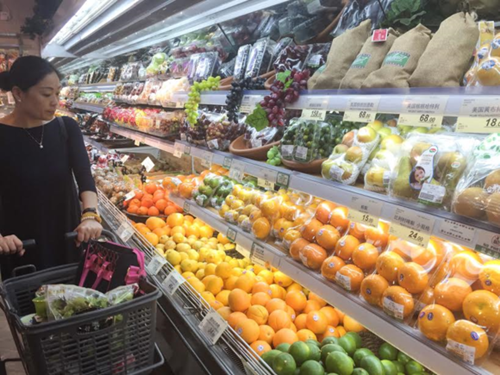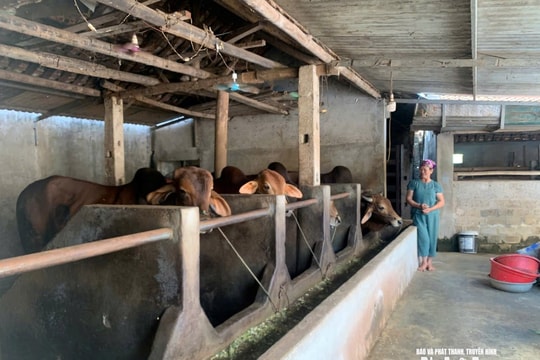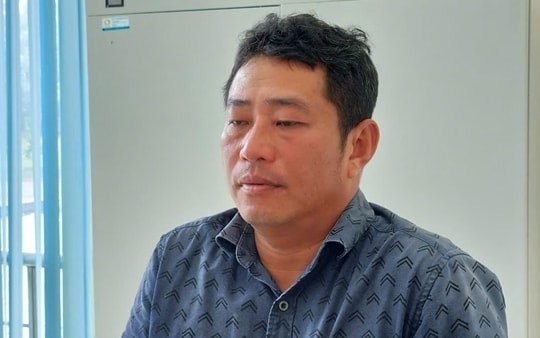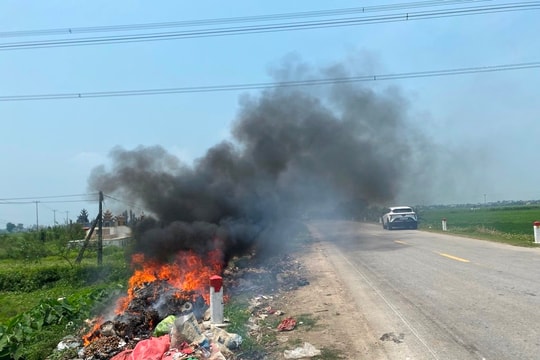Chinese people are also afraid of 'Made in China' products
Looking at the apples on display in a fairly modern supermarket, Elise Qian (China) pays more attention to origin than price, variety and shape.
 |
A customer looks at imported fruit at a supermarket in Shanghai. Photo: Nikkei. |
She likes to buy imported food from Australia, Japan and the US. But Chinese goods are not trustworthy. "There are too many scandals. The water and soil here are polluted," she said. In Shanghai, products from New Zealand, Australia, the US, Japan and Taiwan (China) are sold everywhere.
The Chinese are deeply concerned about soil pollution. Ever since the 2008 melamine-tainted milk scandal that killed six children and hospitalized more than 54,000 others, they have been concerned about domestically produced food. A series of subsequent scandals—from noodles containing industrial dyes to cat and rat meat disguised as rabbit and lamb—have only added to these concerns.
In May, Chinese officials announced plans to reclaim 90 percent of contaminated soil in the next four years. A 2014 study found that 19 percent of the country’s farmland was contaminated with toxic substances such as cadmium, nickel, and arsenic, which can cause cancer and birth defects.
Even if the 300 billion yuan ($45.2 billion) campaign is successful, consumer confidence will be hard to regain. “It’s hard for consumers to differentiate between dirty food and clean food,” said Ada Kong, director of Greenpeace’s East Asia toxics campaign. They believe imported goods are safer and of better quality.
In 2000, China accounted for 3.3% of global agricultural imports, according to the World Trade Organization (WTO). But by 2014, that figure had risen to 9.1%.
U.S. agricultural exports to China have increased more than 200% over the past decade, to $20.2 billion last year. Popular items include garden produce such as apples, soybeans, almonds and citrus.
As for Australia, China is now the largest import partner for agricultural, forestry and seafood products. In the period 2014 - 2015, the import turnover of these products reached 6.95 billion USD. Exports from Europe to China last year also increased by nearly 40% compared to the previous year. Pork, fruit and cereals are popular items.
James Roy, a market analyst at China Market Research Group, said that wealthy Chinese people always prefer imported goods over domestic goods. Brand is no longer the important issue, but the origin. Any brand is fine, as long as it is foreign.
Governments are encouraging companies to tap into this demand. European Commissioner for Agriculture Phil Hogan said about 3 million Europeans are directly dependent on exports to China, mainly in the agricultural sector.
Australian billionaire Andrew Forrest saw this opportunity long ago, and established ASA100 - a group dedicated to promoting Australian food in China, after meeting Chinese Premier Li Keqiang in 2014. In April this year, ASA100 announced that it had reached an agreement to establish a free trade zone for agricultural products imported from Australia in the city of Ningbo - near Shanghai.
The trend has also benefited domestic importers like FruitDay, which sells mainly from the United States, New Zealand and Chile. Its revenue doubled in 2014 to 500 million yuan, and last year it received a $60 million investment from JD.com, China’s second-largest e-commerce company.
Fred Gale, a senior economist at the US Department of Agriculture, said the demand for imports is unlikely to cool down anytime soon. "Supermarket chains and restaurants are improving. Of course, they make mistakes from time to time. But this problem has to be solved gradually, and it can put pressure on suppliers," he said, noting that the US had a similar problem. "It took us over 100 years to solve it. China needs to build a system to build trust. And that will take time."
For now, deep-pocketed consumers like Qian are shunning domestic products. “They look good,” she said. “But I don’t know if they’re safe.”
According to VNE
| RELATED NEWS |
|---|








